In the USC Annenberg Agenda Winter 2014, we hear what it's like for graduate students who attend USC Annenberg to alums who are well-learned in innovation and digital media. There are stories of trips that are far flung to exotic places like India and others that are closer to home covering multicultural communities. India: Reporting on Religion  India 2014 was the fifth trip for USC Annenberg Alum John Adams with Prof. Diane Winston for her “International Reporting on Religion” class — once as a grad student to Israel and the West Bank and four other times (Israel, Ireland and India twice) as an assistant. The trips provide amazing opportunities for the Annenberg community to experience and communicate a different story.
India 2014 was the fifth trip for USC Annenberg Alum John Adams with Prof. Diane Winston for her “International Reporting on Religion” class — once as a grad student to Israel and the West Bank and four other times (Israel, Ireland and India twice) as an assistant. The trips provide amazing opportunities for the Annenberg community to experience and communicate a different story.
Covering Multicultural Communities  One day, it’s duck eggs (pictured left) as a popular street food — the next, it’s immigrant votes, nail salons, tofu, war orphans, refugee gay rights, English learners, the Post Office as cultural connector, and so on. USC Annenberg Alum Anh Do digs her beat covering multicultural communities and breaking news for the Los Angeles Times.
One day, it’s duck eggs (pictured left) as a popular street food — the next, it’s immigrant votes, nail salons, tofu, war orphans, refugee gay rights, English learners, the Post Office as cultural connector, and so on. USC Annenberg Alum Anh Do digs her beat covering multicultural communities and breaking news for the Los Angeles Times.
Deck The Hall: Students, Bikes and Boards 

 To spend time on the USC campus is to witness a New Urbanist’s dream come true — pedestrians and bicyclists and skateboarders moving from place to place, with only the occasional electric cart, or security or delivery car or truck, present as well. USC Annenberg students, faculty and staff remain in the vanguard of alternative transportation efforts. The “Visit” page on the school’s website leads with information about the Metro Expo Line and includes bicycling directions and bike rack locations.
To spend time on the USC campus is to witness a New Urbanist’s dream come true — pedestrians and bicyclists and skateboarders moving from place to place, with only the occasional electric cart, or security or delivery car or truck, present as well. USC Annenberg students, faculty and staff remain in the vanguard of alternative transportation efforts. The “Visit” page on the school’s website leads with information about the Metro Expo Line and includes bicycling directions and bike rack locations.
Reconceptualizing Development In The Global Information Age  Development, from our perspective, is the self-defined social process by which humans enhance their wellbeing and assert their dignity while creating the structural conditions for the sustainability of the process of development itself. Although the concept is ideologically loaded, in our strict definition it is not. The values that inform development goals can be very different; from economic growth calculated as accumulation of material wealth and measured by GDP or income, to holistic development, including the conservation of nature and the happiness of humans, or as dignity as a comprehensive concept as proposed by our book. The concept of informational development refers to informationalism, a new form of sociotechno-economic organization that became fully constituted on a global scale in the early twenty first century.
Development, from our perspective, is the self-defined social process by which humans enhance their wellbeing and assert their dignity while creating the structural conditions for the sustainability of the process of development itself. Although the concept is ideologically loaded, in our strict definition it is not. The values that inform development goals can be very different; from economic growth calculated as accumulation of material wealth and measured by GDP or income, to holistic development, including the conservation of nature and the happiness of humans, or as dignity as a comprehensive concept as proposed by our book. The concept of informational development refers to informationalism, a new form of sociotechno-economic organization that became fully constituted on a global scale in the early twenty first century.
Connector, Not Container Ernest J. Wilson III, the Dean of the USC Annenberg School for Communication and Journalism, spoke at the Wallis Annenberg Hall Grand Opening ceremony on Oct. 1, 2014. In 2010, he and Wallis Annenberg began a conversation. They reflected together on the importance of journalism and communication for the future of democracy in the United States of America.
The Heart of Human Connectivity C. L. Max Nikias, the University of Southern California’s eleventh president, gave the speech for the dedication of the Wallis Annenberg Hall. He holds the Robert C. Packard President’s Chair and the Malcolm R. Currie Chair in Technology and the Humanities, and chairs the USC Health System Board.
This Building Started With A Vision Wallis Annenberg, Chairman of the Board, President and CEO of the Annenberg Foundation, discusses how the Wallis Annenberg Hall is designed to mix all kinds of media together — TV, radio, print and online. In a world that’s fully-wired and interactive, journalists can no longer survive if they stay in their own narrow cubbyholes, unable to spread their stories across every possible platform. It’s also designed, in close consultation with anthropologists and psychologists and sociologists, to provide connectors, not containers — to give students informal and open spaces where they’re almost forced to rub shoulders, to collaborate, to observe and learn from one another. Because news is now moving so fast, reporters have to be synergistic, not static. She is USC’s longest-serving trustee. Come to Me and You're Hired A Sanctuary of Storytellers
Third Space 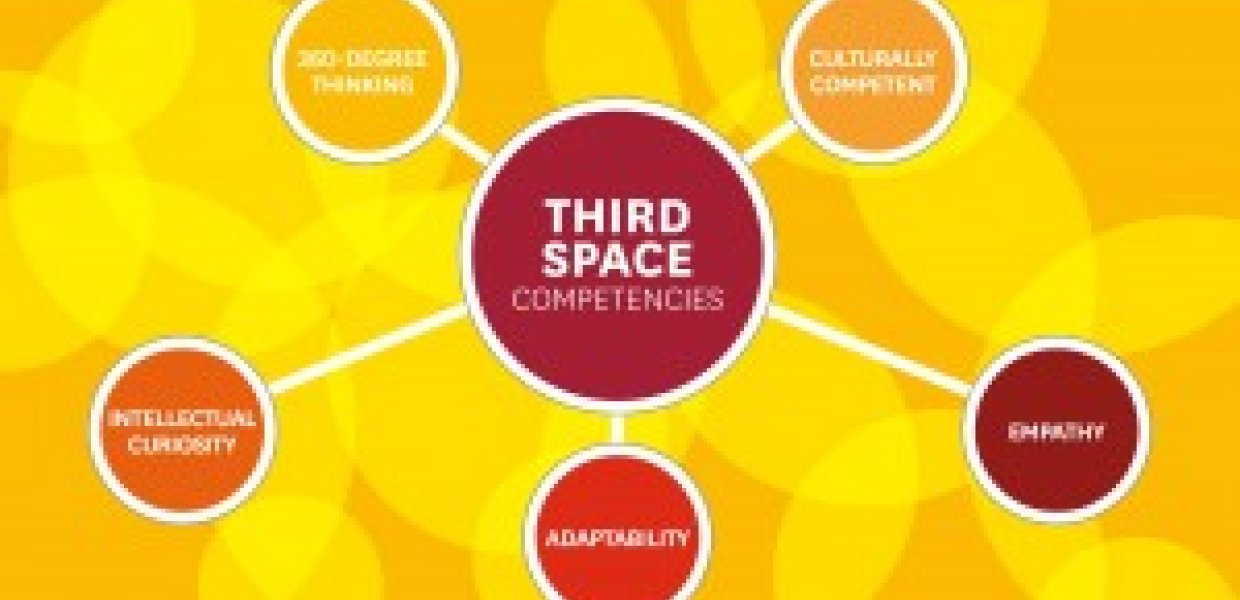 According to a Boston Consulting Group survey, 76% of senior executives rank talent management the biggest blind spot in their companies. The McKinsey Global Institute has found that between $900 billion and $1.3 trillion is missing from the economy, due to — in short — time wasted on inefficient and ineffective communication and collaboration. What exactly is this blind spot, and why is there such a huge talent gap? Companies, academics and research firms have attempted to answer these questions in various ways, but to date there has been no comprehensive attempt to synthesize their findings or definitively identify the real capabilities of those people who can fill the gap. For this reason, USC Annenberg’s Third Space researchers conducted their own inquiry, asking 75 senior executives in companies in various industries and around the world what kind of talent is in highest demand.
According to a Boston Consulting Group survey, 76% of senior executives rank talent management the biggest blind spot in their companies. The McKinsey Global Institute has found that between $900 billion and $1.3 trillion is missing from the economy, due to — in short — time wasted on inefficient and ineffective communication and collaboration. What exactly is this blind spot, and why is there such a huge talent gap? Companies, academics and research firms have attempted to answer these questions in various ways, but to date there has been no comprehensive attempt to synthesize their findings or definitively identify the real capabilities of those people who can fill the gap. For this reason, USC Annenberg’s Third Space researchers conducted their own inquiry, asking 75 senior executives in companies in various industries and around the world what kind of talent is in highest demand.
The Storyteller: Callie Schweitzer 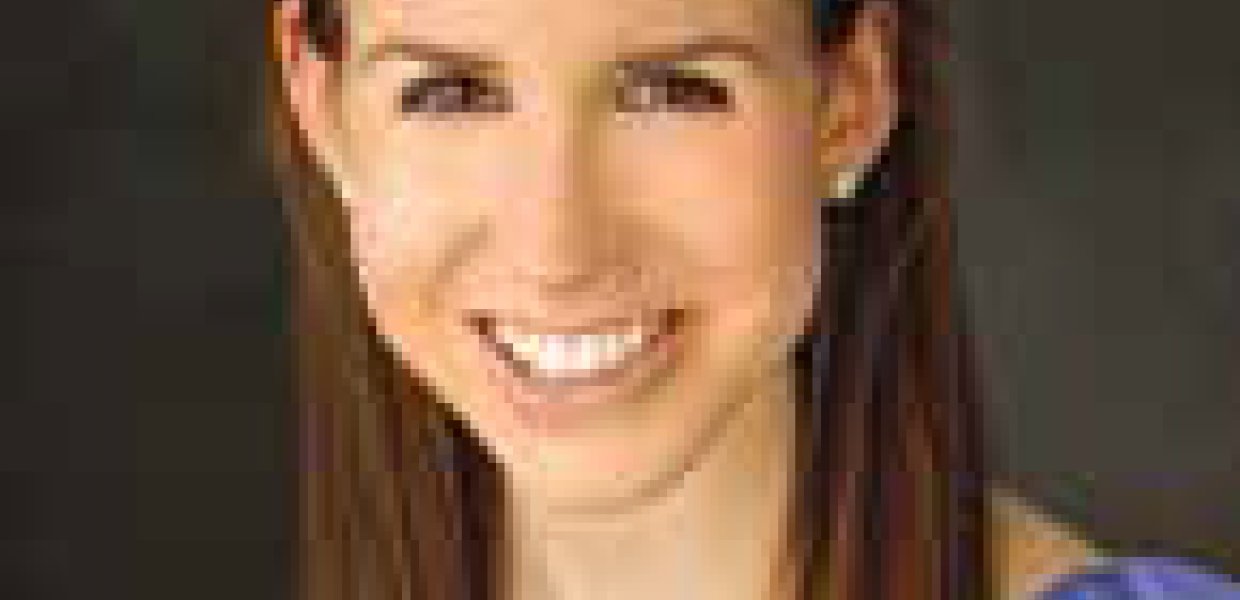 Callie Schweitzer learned about innovation, digital media and entrepreneurism well before she graduated with a degree in print and digital journalism from USC Annenberg (summa cum laude) in 2011. She was the editor-in-chief of Neon Tommy, USC Annenberg’s 24/7 online news site, which became the #1 most-trafficked online-only student publication in the country within a year of its launch. Today, she is the editorial director of Audience Strategy, for TIME and TIME Inc. She was promoted earlier this year from her previous position as director of Digital Innovation at TIME.
Callie Schweitzer learned about innovation, digital media and entrepreneurism well before she graduated with a degree in print and digital journalism from USC Annenberg (summa cum laude) in 2011. She was the editor-in-chief of Neon Tommy, USC Annenberg’s 24/7 online news site, which became the #1 most-trafficked online-only student publication in the country within a year of its launch. Today, she is the editorial director of Audience Strategy, for TIME and TIME Inc. She was promoted earlier this year from her previous position as director of Digital Innovation at TIME.
Third Space Company: IBM's Marketing Innovation Lab 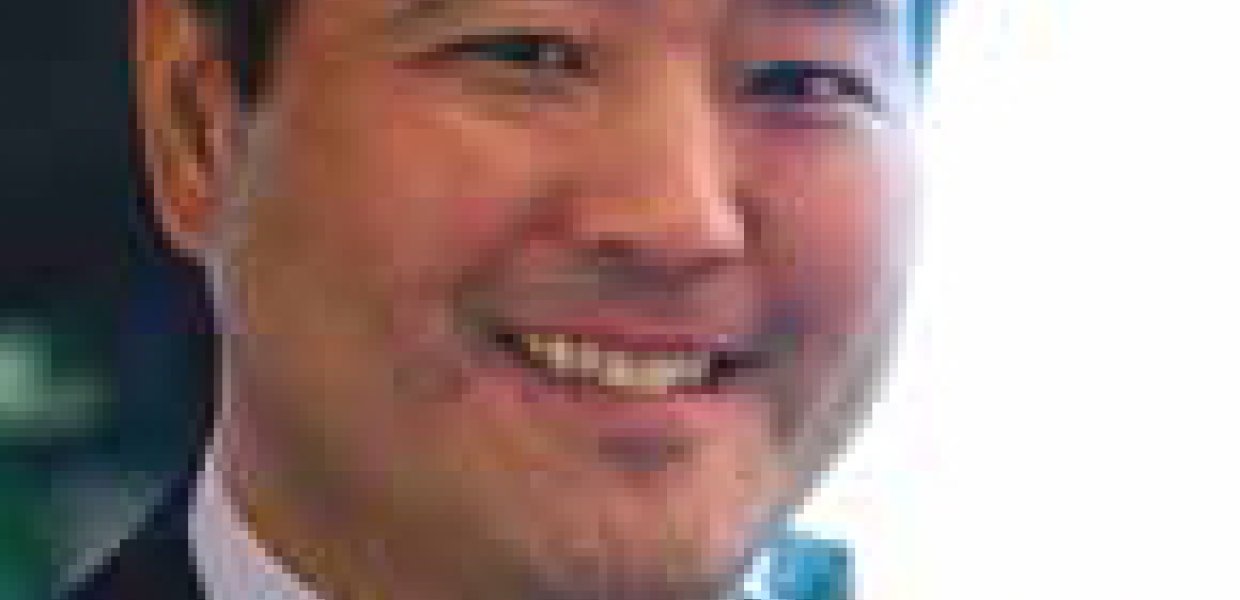 One company that has gone out of its way to locate, hire and nurture people with Third Space traits and inject them into an environment where they can make a difference is IBM. Like all big companies, IBM has many “hardskilled,” linear-thinking experts in operations, but relatively few people who exhibit the broader Third Space core competencies. To leverage the skills of those with demonstrated Third Space skills and to enhance collaboration and communication between people in marketing and other constituencies across the company, like R&D and sales, IBM has set up its Marketing Innovation Group. The group manages a portfolio of internal start-ups that use enterprise data and platforms to develop new technology services and digital experiences.
One company that has gone out of its way to locate, hire and nurture people with Third Space traits and inject them into an environment where they can make a difference is IBM. Like all big companies, IBM has many “hardskilled,” linear-thinking experts in operations, but relatively few people who exhibit the broader Third Space core competencies. To leverage the skills of those with demonstrated Third Space skills and to enhance collaboration and communication between people in marketing and other constituencies across the company, like R&D and sales, IBM has set up its Marketing Innovation Group. The group manages a portfolio of internal start-ups that use enterprise data and platforms to develop new technology services and digital experiences.
The Entrepreneur: Elisa Schreiber  Elisa Schreiber has made a career out of working with technology start-ups that look 10 years into the future. Schreiber is one of twelve Third Space Founding Advisors. Schreiber was also a participant in Annenberg Forum 2014, which was about the Third Space. Today, from her perch at the center of Silicon Valley, Schreiber has a wide view of what the next Mark Zuckerbergs of the world are up to. As vice president of marketing for one of the most successful and respected venture capital firms in the technology world, Greylock Partners, her job is to help entrepreneurs with their marketing efforts and to manage all marketing activities for the firm. Before that, she ran global communications for Hulu, where she launched Hulu Plus, the fastest-growing online video subscription service in U.S. history, which grew to more than 5 million paid subscribers during her tenure there.
Elisa Schreiber has made a career out of working with technology start-ups that look 10 years into the future. Schreiber is one of twelve Third Space Founding Advisors. Schreiber was also a participant in Annenberg Forum 2014, which was about the Third Space. Today, from her perch at the center of Silicon Valley, Schreiber has a wide view of what the next Mark Zuckerbergs of the world are up to. As vice president of marketing for one of the most successful and respected venture capital firms in the technology world, Greylock Partners, her job is to help entrepreneurs with their marketing efforts and to manage all marketing activities for the firm. Before that, she ran global communications for Hulu, where she launched Hulu Plus, the fastest-growing online video subscription service in U.S. history, which grew to more than 5 million paid subscribers during her tenure there.
Graduate School: A Family Affair 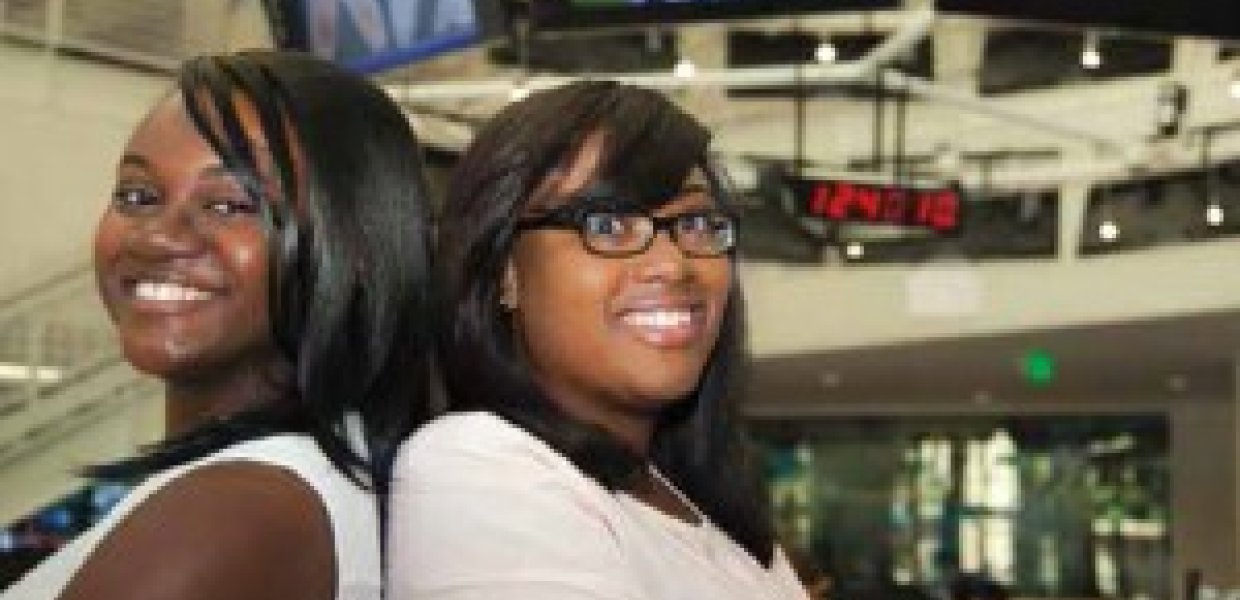 Moving across the country for graduate school is an undertaking that could daunt even the most fearless of students. Fortunately USC Annenberg M.S. Journalism program students Jessica and Maritza Moulite were right by each other’s side when they moved from Miami to Los Angeles and started a nine-month graduate program.
Moving across the country for graduate school is an undertaking that could daunt even the most fearless of students. Fortunately USC Annenberg M.S. Journalism program students Jessica and Maritza Moulite were right by each other’s side when they moved from Miami to Los Angeles and started a nine-month graduate program.
Mr. Fish: WARNING! Graphic Content  The new Annenberg Press book WARNING! Graphic Content lives up to its title. Have your IDs ready and your intolerance for incendiary pictures and controversial ideas checked at the door for it’s time to step into the head of the unabashedly liberal awardwinning cartoonist and writer Dwayne Booth (aka “Mr. Fish”), where inflammatory ideas meet deep insights — and things like inspiring woe, discouraging indifference and gleeful nihilism are born. In WARNING! Graphic Content, Mr. Fish examines the past, present and future of art as commentary, deciphering its substructure and translating its unique alphabet into a wholly accessible vocabulary.
The new Annenberg Press book WARNING! Graphic Content lives up to its title. Have your IDs ready and your intolerance for incendiary pictures and controversial ideas checked at the door for it’s time to step into the head of the unabashedly liberal awardwinning cartoonist and writer Dwayne Booth (aka “Mr. Fish”), where inflammatory ideas meet deep insights — and things like inspiring woe, discouraging indifference and gleeful nihilism are born. In WARNING! Graphic Content, Mr. Fish examines the past, present and future of art as commentary, deciphering its substructure and translating its unique alphabet into a wholly accessible vocabulary.
Q&A With Corii and Cari Berg 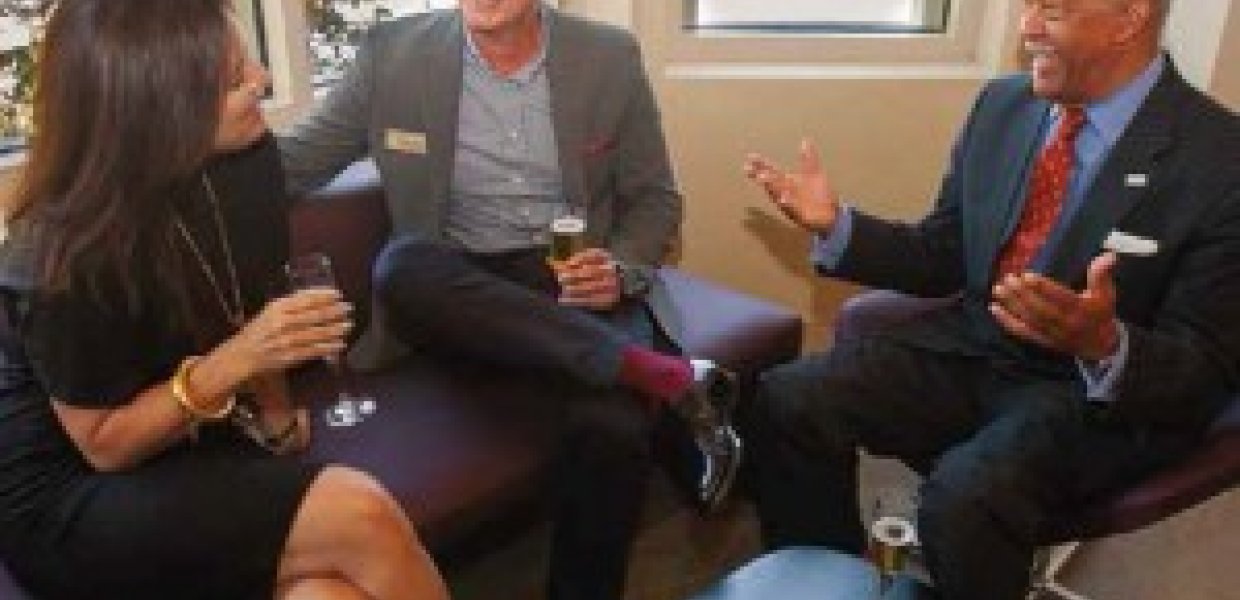 Corii Berg (Broadcast Journalism and Political Science ’89) and Cari Berg (Communication ’89) met as USC Annenberg students. Corii is a member of the USC Annenberg Alumni Advisory Board and is Senior Executive Vice President, Business Affairs, Sony Pictures Television. Cari is the founder of Cari Berg Interior Design. The couple was interviewed by phone following their attendance at the Wallis Annenberg Hall Grand Opening Ceremony.
Corii Berg (Broadcast Journalism and Political Science ’89) and Cari Berg (Communication ’89) met as USC Annenberg students. Corii is a member of the USC Annenberg Alumni Advisory Board and is Senior Executive Vice President, Business Affairs, Sony Pictures Television. Cari is the founder of Cari Berg Interior Design. The couple was interviewed by phone following their attendance at the Wallis Annenberg Hall Grand Opening Ceremony.

